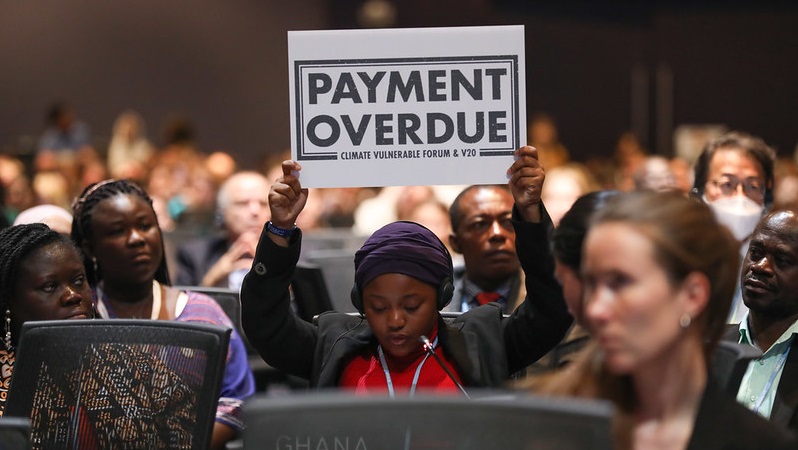Money blog: Can my lender end my fixed-rate mortgage early? | UK News

How much is pocket money in 2024 and where are kids spending it? New data reveals all
By Bhvishya Patel, Money team
Pocket money is in decline, data shows – but kids are finding new ways to pay for their everyday “essentials”.
Data from the Natwest pocket money index (looking at transactions from 308,000 children in the Rooster app) shows only 30% of families now pay pocket money as part of a regular routine (down 2%), with children getting £3.78 on average a week (down 10p from last year).
In fact, pocket money now makes up just 14% of children’s income. Instead they’re finding new income streams – with a typical child netting £479.96 a year (£9.23 a week) for one-off chores or entrepreneurship.
These “salaries” obviously differ for age groups…
- £5.68 for a six-year-old
- £24.71 for a 17-year-old
British children are now charging extra for chores and squeezing more money out of their side hustles.
- Car cleaning earned £3.25 on average – 32% (79p) more than a year ago
- Paper round earnings increased 2% (45p) to £23.10 a week
- However, it’s been a less good year for reselling – with earnings down 15% to £22.62 a week.
Arguably the most interesting part of the data is where kids are spending their money.
Amazon was top, with Tesco and McDonald’s next. Primark, Co-op, PlayStation, Xbox, Sainsbury’s and Asda are next in that order – but there’s no place this year for Apple, which has been replaced by fashion brand Shein, rounding off the top 10.
NatWest Rooster Money said “kids’ money is completely changing shape”…
“Kids are increasingly complementing [pocket money] in other, more sophisticated ways. This move to greater independence and maturity in their earning has been fantastic to see and bodes well for some bright, financially confident futures ahead.”
Will Carmichael, chief executive and founder of NatWest Rooster Money
An illustration of this maturity is kids’ saving rate of 9.5% – not far off the adult average of 10.2%. Gaming, holidays and the future were the top three saving incentives, in that order.
Is there a right answer?
Kirsty Ketley, a parenting specialist from Surrey, said she gave her 11-year-old daughter Ella £5 and her seven-year-old son Leo £2 a week in cash.
They both started receiving pocket money when they were six.
“I often say to parents, even with children as young as four, it’s fine to start giving a bit of pocket money because it’s such an important life skill to have – to learn how to manage money because you don’t get taught it,” she said.
Presenter and children’s author Konnie Huq, who has two sons, Covey, 12, and Huxley, 10, told the Money team that a regular pocket money allowance was a “really good way” of getting children into the habit of earning and spending.
She said receiving a regular allowance helped teach children “responsibility” and “financial literacy”.
“That’s what they will be doing as the grown-ups they become,” she said. “I’ve always said kids are shaping and forming between 0 to seven. You want to put the values in them now in these younger years that they will take through with them in their life.”
Sharon Olivero-Chapman, chief executive and founder of Harrienna Health, disagrees. She has always thought a regular pocket money figure is the “wrong message to give to children” – and her daughter Harriet, 13, is one of those raking it in from side hustles.
“Pocket money gives them the wrong association with money,” she said. “They’re just given money on a plate, whereas that’s not real life, is it?”
Ms Olivero-Chapman said if her daughter did want to buy something she had to work out how she could get that money and would then be given chores to earn it. She said it was £1 to unload and fill the dishwasher, £1 to fill and empty the washing machine and 50p to make her bed.
“It’s not a regular thing every week,” she explained.
Ms Olivero-Chapman said the family’s entrepreneurial bug had rubbed off on Harriet and she began running her own Etsy store business last year which sees her personalise phone cases. Her business has earned nearly £1,000 so far.
Your pocket money stories – how much, how and in return for what
The Dursuns, Scotland
Aga Dursun, 41, a PMO analyst from Erskine, gives her 13-year-old son Galip £3 a day and her nine-year-old son Troy £1 a day via transfers into a Starling account. They also get £20 each on her pay day. No chores are required.
“It gives them a lot of freedom and they learn the value of money as well because for example now if they want more expensive trainers they have to save up,” she says.
“It’s mostly spent on games which breaks my heart.”
The Shaws, London
Sammy Shaw, from Enfield, said she gave her eight-year-old twins Teddy and Hope £3.50 a week via the Natwest Rooster Money card.
To earn the money, her son and daughter are set a number of activities which they must complete – if they don’t, money is deducted.
“My two have got an exceptional amount they have got to do. The first thing they’ve got to do is make their bed, get dressed independently. When they go downstairs they’ve got to do 10 minutes of practice on the keyboard, they do Times Tables Rock Stars (a digital maths app) and then 10 minutes of reading.
“The parent has to go into the app and approve these activities and if they don’t do them it takes percentages off.”
Last year, the twins saved up to buy theatre tickets for the family at £35 a pop.
The Regulskis, Wales
Over in Caerphilly, Dean Regulski, 44, has a fairly similar routine: money in return for washing, ironing, dog walking, laundry and vacuuming. He and his wife give kids Emmeline, Nancy and Abraham (aged 12 to 15) £10 a week also using Rooster.
“Every time they want to make a transaction, it pings my phone so straight away I can have a conversation with them about what they are buying and if it’s just sweets I can limit it on the app so it’s a £1 transaction,” Dean says.
“My son the other day was asking if he could buy something that was beyond the £40 and I said he can take it out next month but that will cost extra chores. I explained the concept of interest to him.”
The Moores, West Midlands
Ben Moore, 40, from Solihull, said his 13-year-old twin daughters had got £5 a week in pocket money for the past two years.
They used GoHenry before switching to a debit card.
“We spent a year on GoHenry and it was good because we could say ‘you can’t spend it on McDonald’s’ and restrict the type of spending but there was a monthly fee for it,” he said.
Chores are not a requirement as he is “really keen” his daughters use the money to “go out with their friends rather than just sit on their phones”.
The Scotts, Wiltshire
Fiona Scott, 58, from Swindon in Wiltshire, said her three children Samantha, 24, Georgia, 22, and David, 17, all got pocket money until they were able to make their own money.
“We’ve always had a little book at home showing this is what is coming in and going out and this is what we’ve got to spend, so I’ve encouraged them all to do that in different ways. They’ve got used to seeing and understanding what a household budget is,” she said.
The Joneses, West Midlands
Mother-of-three Jenny Jones, 43, said her 11-year-old daughter Rebecca receives £10 a month – no chores, but everyone is expected to muck in.
It started off with 50p a week when she was seven but when she turned 11, Ms Jones opened up a junior account at Barclays and money goes in monthly.
“It’s taught her general management around money. At the moment she loves bubble tea and she loves getting bits of jewellery so it’s a case of her thinking what does she want, can she afford both? It enables her to make those decisions.
“It’s just those life lessons, isn’t it? We can’t have everything we want and you’ve got to make those decisions – and it’s okay to make the wrong decision, which is normal.”
link







